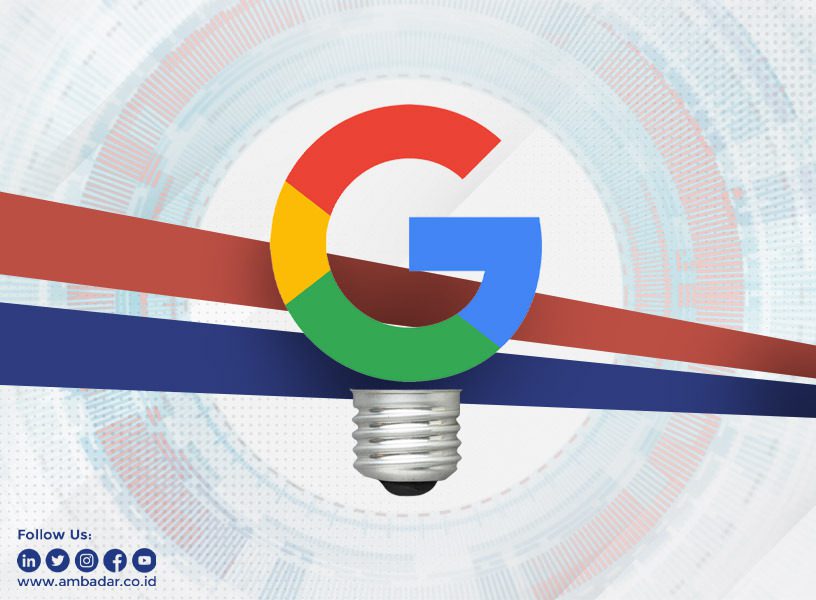Google is not just a data search site. Google is a trillion-dollar company that owns Android, the operating system used by millions of people, and YouTube, a video-sharing-based social media that can pay its users to earn high incomes and never stop using it.
YouTube has become the next search engine when most people need a visual reference to solve various problems. From finding references for products to learning many things, including important lessons and the latest, in this rapidly changing era.
Google.com, as a search engine, registered its domain on September 15, 1997, by Larry Page and Sergey Brin, students from Stanford University.
The project, which started in 1996, has since increased and has been used to perform 10,000 searches in a day at the end of 1999. As an innovative technology company, Google cannot be separated from inventions in terms of Intellectual Property protection called Patent.
Law no. 13 of 2016 (Indonesian Patent Law) states that a patent is an exclusive right granted by the state to an inventor for his invention in the field of technology for a certain period to carry out the invention himself or to give approval to other parties to implement it.
While the invention in question is the inventor’s idea that is poured into a specific problem-solving activity in the field of technology, it can be in the form of a product or process or product or process improvement and development.
Inventions and Patent protection for Google are practically their daily business. Because in a year, they can submit 4,000 to 8,000 more applications to the USPTO (United States Patent and Trademark Office). Of the thousands of patents owned by Google, there are five that we think are unique to be featured on this Google’s Day. Here is the list:
- Self-Creation of Comic Strips in Social Networks and Other Communications
Filed for registration in 2010 (USPTO: US8621366B1), this invention allows social media users to create statuses in the form of comic strips, complete with selectable characters, along with speech bubbles.However, this technology failed to present attractive visuals, so it was not so popular and expired in 2017.
- Sound, Light, and Temperature Advertisement Generator
In a 2008 patent application titled “Advertising Based on Environmental Conditions,” Google envisions equipping smartphones and other devices with a sensor that would detect temperature, humidity, sound, light, and/or the chemical composition of the air around a user. The mobile device would transmit that data back to Google, which then would use it to send ads targeted to the user’s particular settings.For example, if you’re in a hot, humid locale, you might see an ad pop on your screen from an air conditioning manufacturer. And if you use your mobile phone while at an Adele concert, the technology could send you ads for music by other British female singers or restaurants close to the concert hall.
- App for Splitting Restaurant Bills
In 2013, the company applied for a patent called “Tracking and Managing Group Expenditures.” It envisions a smartphone app that not only calculates how much is owed to the person who is paying the waiter but also automatically transfers the money to that person’s online account. Now, you must get your friends to install this app before dining. - Automatic Transition of Content Based on Facial Recognition
Methods and systems for automatically transitioning content based on facial recognition, wherein the method may include receiving a signal from a camera, identifying a face of a viewer within an area, retrieving a user identifier associated with the face of the viewer, selecting a program, and displaying the program. - Patents to Boost Your SEO
If we talk about SEO, it cannot be separated from Google. Because the Search Engine referred to in SEO (Search Engine Optimization) is Google itself. So the patents registered by Google related to SEO are arguably tips & tricks for users to find their home addresses easily with some specific keywords amid the wilderness of address data that Google can reach.The patents that are registered related to SEO include Content Clustering, Document scoring based on document inception date, User-context-based search engine, Identifying local experts for local search, and Ranking documents based on user behavior and/or feature data.
After reading this article, we are sure that Partners’ insight will be much more open and understand that Google is an entirely innovation-based company, not just a search engine.
Now it’s time for us to think about other inventions so that the next trillion-dollar companies will come from Indonesia.
Source(s):






